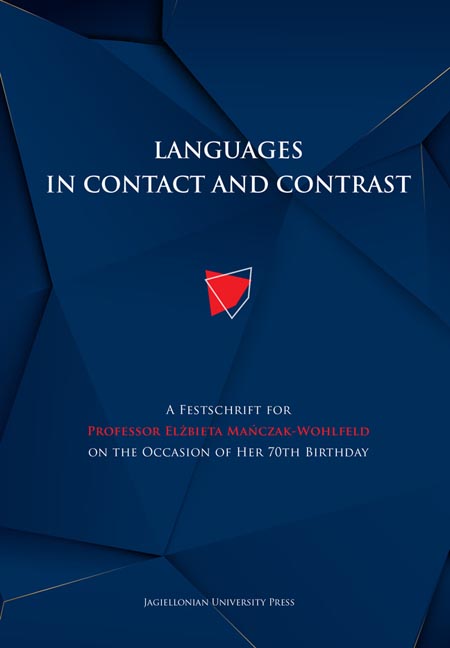 Languages in Contact and Contrast
Languages in Contact and Contrast Published online by Cambridge University Press: 14 October 2023
This paper concerns English borrowings in informal Polish and presents their main lexical fields. Such borrowings constitute a vibrant and growing part of contemporary Polish, which reflects the expanding global influence of the English language. This influence is perceptible in the increasingly pervasive use of English in Poland, which indirectly affects the speech patterns of Polish speakers via borrowings, including informal language. In this paper, I attempt to answer two rather fundamental yet intriguing questions: What are English borrowings in informal Polish about? and Are they different from English borrowings in non-informal Polish? In so doing, I present a representative selection of these expressions, grouped into the main thematic categories called lexical fields. These categories are based on the preliminary analysis of expressions found in the Database of English Borrowings in Informal Polish, a sizable collection of citations collected from contemporary Polish sources such as the press, television, film, literature and conversations with Polish native speakers. The material ‒ which also served as the basis for much larger work on the subject (see Kowalczyk and Widawski 2019) ‒ has been collected over the last decade, and partially funded by grants from the Polish Ministry of Higher Education.
Introductory remarks
Let us briefly explain some of the key terms used in this paper. The term borrowing (or lexical borrowing) can be broadly defined as taking a word or phrase from one language into another or as the item so taken (McArthur 1992: 141). It is perhaps the most universally used “umbrella” term, firmly entrenched in linguistics (Durkin 2014: 3). An alternative term, loanword, is used more or less interchangeably with it and generally functions as its most common synonym (Steinmetz and Kipfer 2006: 303). However, it is slightly different in that it essentially refers to a borrowed word rather than a phrase or sentence (although its semantic scope is more inclusive in common usage). Needless to say, various terminological and typological classifications have been proposed (see, for instance, the classifications by Bloomfield 1933; Haugen 1950; Weinreich 1953; Fisiak 1961; Katamba 1996; Wohlgemuth 2009 or Kuźniak 2009) but these are beyond the scope of this paper.
To save this book to your Kindle, first ensure [email protected] is added to your Approved Personal Document E-mail List under your Personal Document Settings on the Manage Your Content and Devices page of your Amazon account. Then enter the ‘name’ part of your Kindle email address below. Find out more about saving to your Kindle.
Note you can select to save to either the @free.kindle.com or @kindle.com variations. ‘@free.kindle.com’ emails are free but can only be saved to your device when it is connected to wi-fi. ‘@kindle.com’ emails can be delivered even when you are not connected to wi-fi, but note that service fees apply.
Find out more about the Kindle Personal Document Service.
To save content items to your account, please confirm that you agree to abide by our usage policies. If this is the first time you use this feature, you will be asked to authorise Cambridge Core to connect with your account. Find out more about saving content to Dropbox.
To save content items to your account, please confirm that you agree to abide by our usage policies. If this is the first time you use this feature, you will be asked to authorise Cambridge Core to connect with your account. Find out more about saving content to Google Drive.